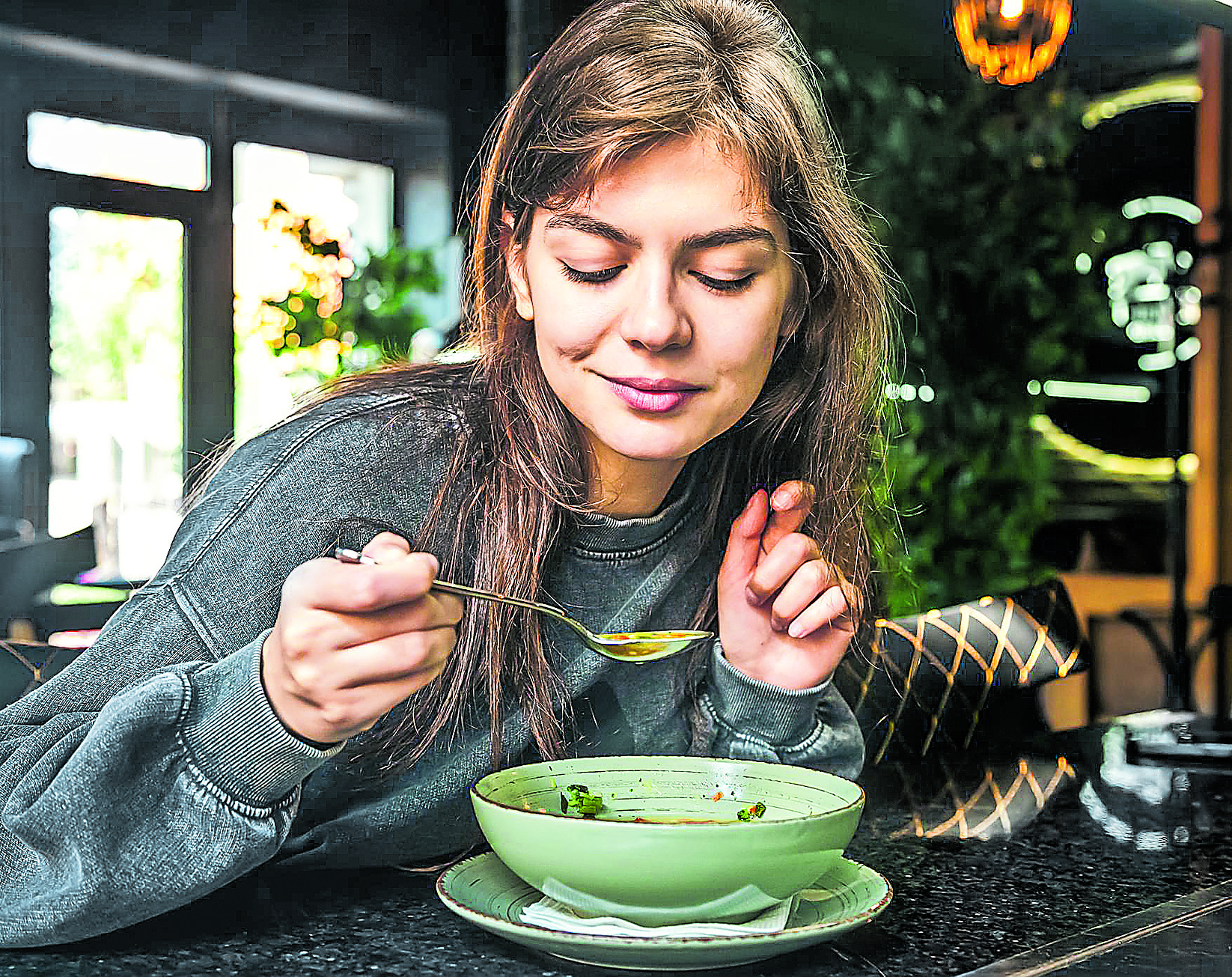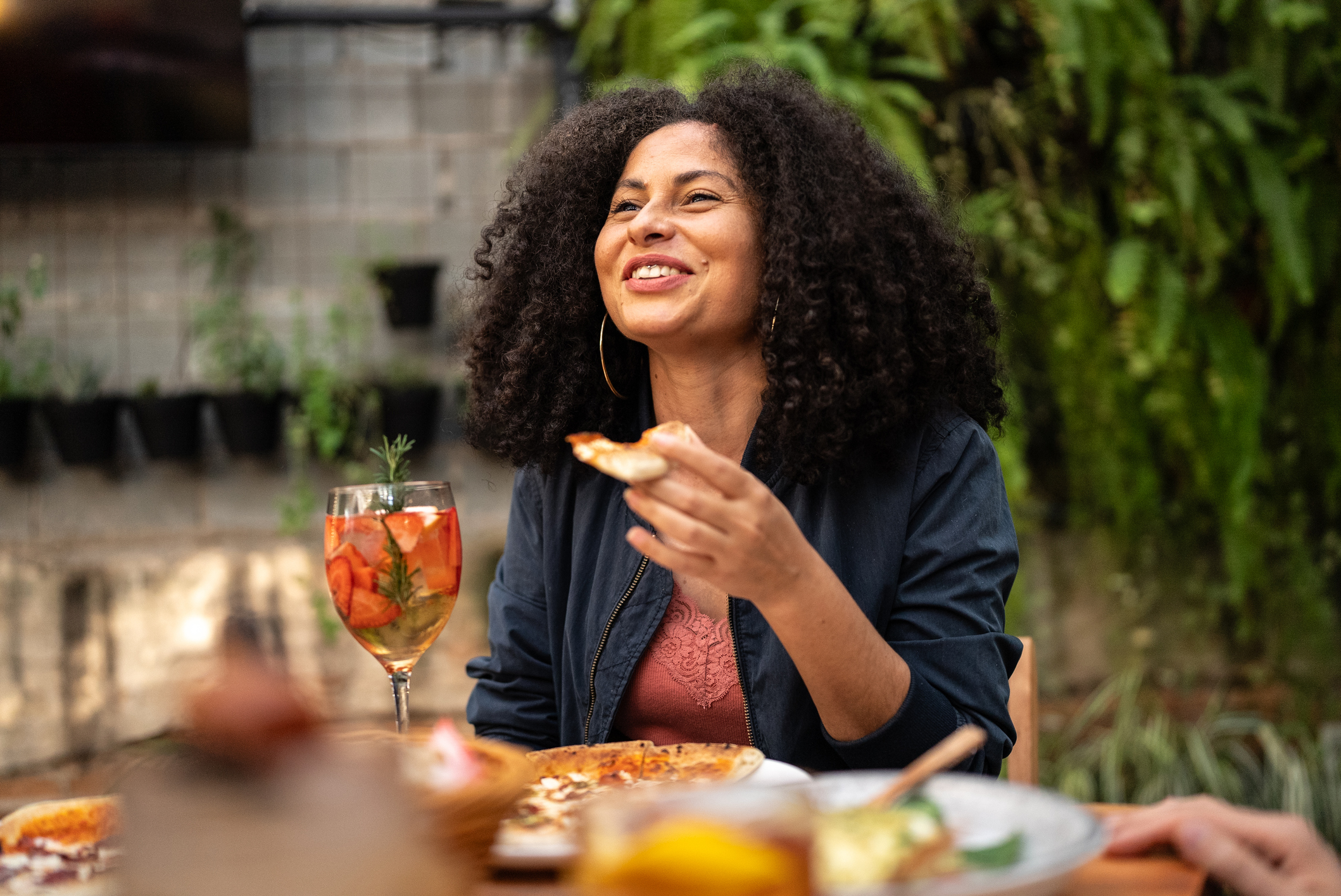Eating regularly with friends and family brings great benefits to mental health, reveals a scientific study.

According to the World Happiness Report 2025, social relationships are an important factor in happiness, both at the individual and national levels, and across cultures.
In a chapter titled 'Sharing meals with others: How sharing meals supports happiness and social connections', the researchers presented evidence on the positive impact of sharing meals, an indicator that is particularly comparable across countries and cultures , between individuals and over time.

Researchers found differences in meal sharing rates around the world. Photo: iStock
Using data from 142 countries and territories collected by Gallup in 2022 and 2023, they found differences in rates of shared meals around the world.
While residents of some countries share almost all their meals with others, in other countries the majority of people eat alone almost all the time. These differences are not explained solely by factors such as income, education, or employment .
"Sharing meals turns out to be an exceptionally strong predictor of subjective well-being, on par with income and unemployment . People who share more meals with others report significantly higher levels of life satisfaction and positive emotions, and lower levels of negative emotions," the study explains.
Using data from the American Time Use Survey, researchers found evidence that Americans are increasingly spending more time eating alone. In 2023, approximately 1 in 4 Americans reported eating all of their meals alone the day before , a 53 percent increase since 2003.

In 2023, approximately 1 in 4 Americans reported eating all their meals alone. Photo: iStock
The analysis revealed that countries where people share more meals tend to show higher levels of social support and positive reciprocity, and lower levels of loneliness.
Despite these findings, the report notes that there are still gaps in our understanding of the relationship between meal sharing, subjective well-being, and social connections.
How was the study conducted? In 2022 and 2023, the Gallup World Poll asked representative samples in 142 countries and territories how often they had lunch or dinner with family , friends, or other acquaintances.
In general, marked differences are observed in the frequency with which people eat together or alone in different parts of the world. Latin America and the Caribbean, for example, stands out as the leading region in the habit of sharing meals. On average, its inhabitants share approximately nine meals per week with others.
On the other hand, at the other extreme is South Asia, where people report sharing fewer than 4 meals per week.
Canada ranks 53rd, with 8.4 shared meals per week; the United States is 69th, and the United Kingdom is 81st. Germany is in 91st, while India is in 132nd, with only 4 shared meals. In last place are Bangladesh and Estonia, where residents report sharing just 2.7 shared meals per week.

Latin America and the Caribbean stand out as the leading region in the habit of sharing meals. Photo: iStock
The study notes that these factors are unlikely to be due solely to differences in income level. "The fact that low-income countries in sub-Saharan Africa and Latin America report such high levels of shared meals calls into question the assumption that sharing more meals with others is simply a consequence of eating more in general," the paper explains.
And the relationship with well-being? The analysis found a positive relationship between sharing meals and life evaluations. At the country level, sharing one more meal per week is associated, on average, with an increase of approximately 0.2 points on a scale of 0 to 10. This increase is roughly equivalent to moving up five places in the global happiness ranking presented in Chapter 2 of the same report.
"The most significant difference in life evaluations was between those who ate all their meals alone and those who shared at least one meal with someone. People who shared only one meal during the past week reported significantly higher life evaluations (5.2) than those who ate alone the entire time (4.9)," the report adds.
And they mention that the evaluations remain practically constant (between 5.2 and 5.3) for those who shared between 1 and 5 meals during the week , and increase slightly (to between 5.5 and 5.6) for those who shared between 5 and 8 meals.

The relationship between sharing meals and negative emotions is stronger in women. Photo: iStock
When they analyzed men and women separately, they found no statistically significant differences in the relationship between sharing meals and life evaluations by gender. However, when they considered negative emotions, the result changed. First, men report considerably lower levels of negative affect than women in general. They also found that the relationship between sharing meals and negative emotions is stronger in women than in men.
Another finding is that people who share more meals seem to enjoy food more. "In short: across all regions, countries, and cultures, among both men and women, young and old, sharing more meals is associated with greater subjective well-being ," the paper reads.

People who share more meals seem to enjoy food more. Photo: iStock
And, in conclusion, the researchers assert that the strong and consistent relationships between meal sharing, well-being, and social connections they documented in this report represent a call for further research.
eltiempo





